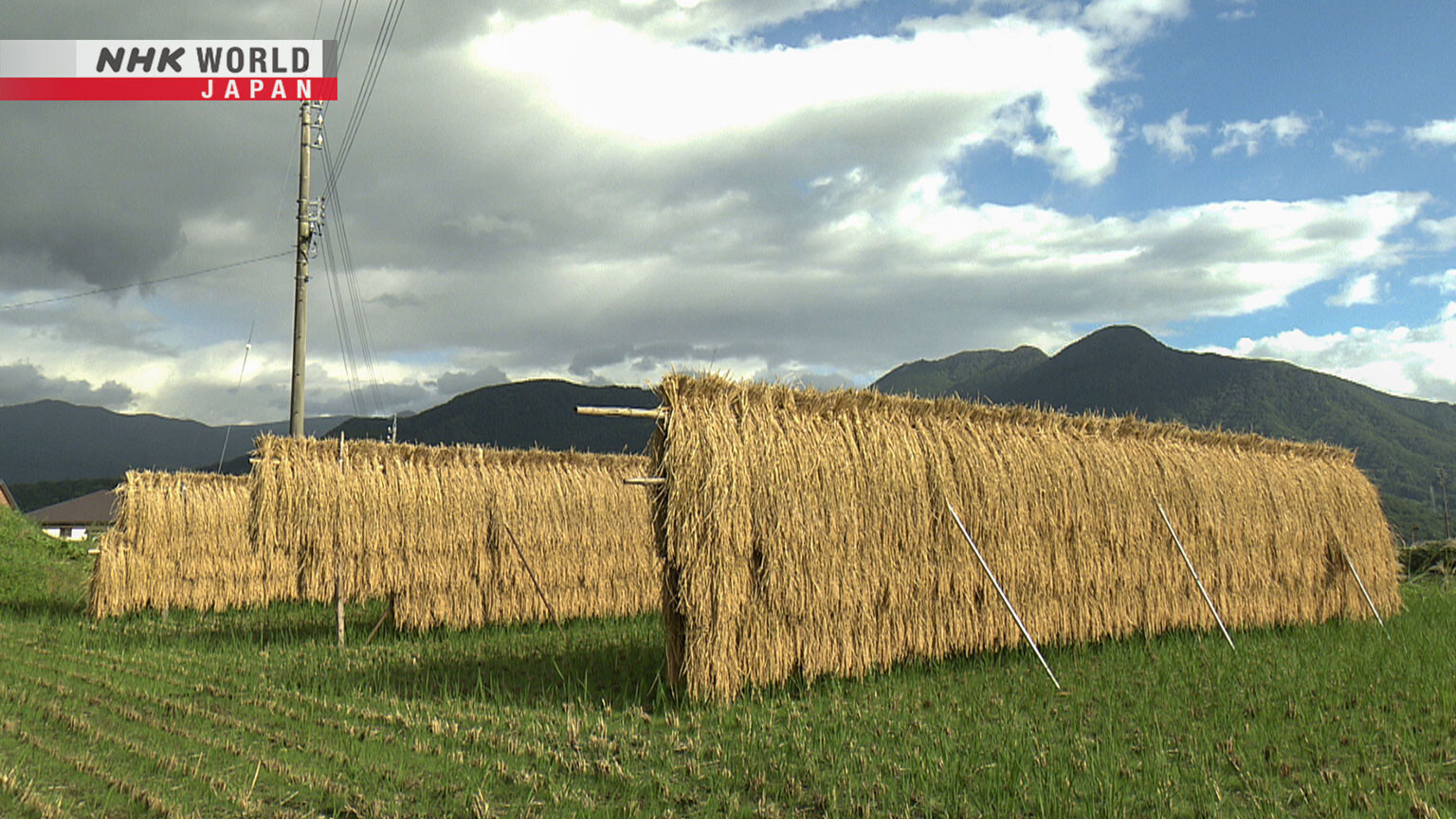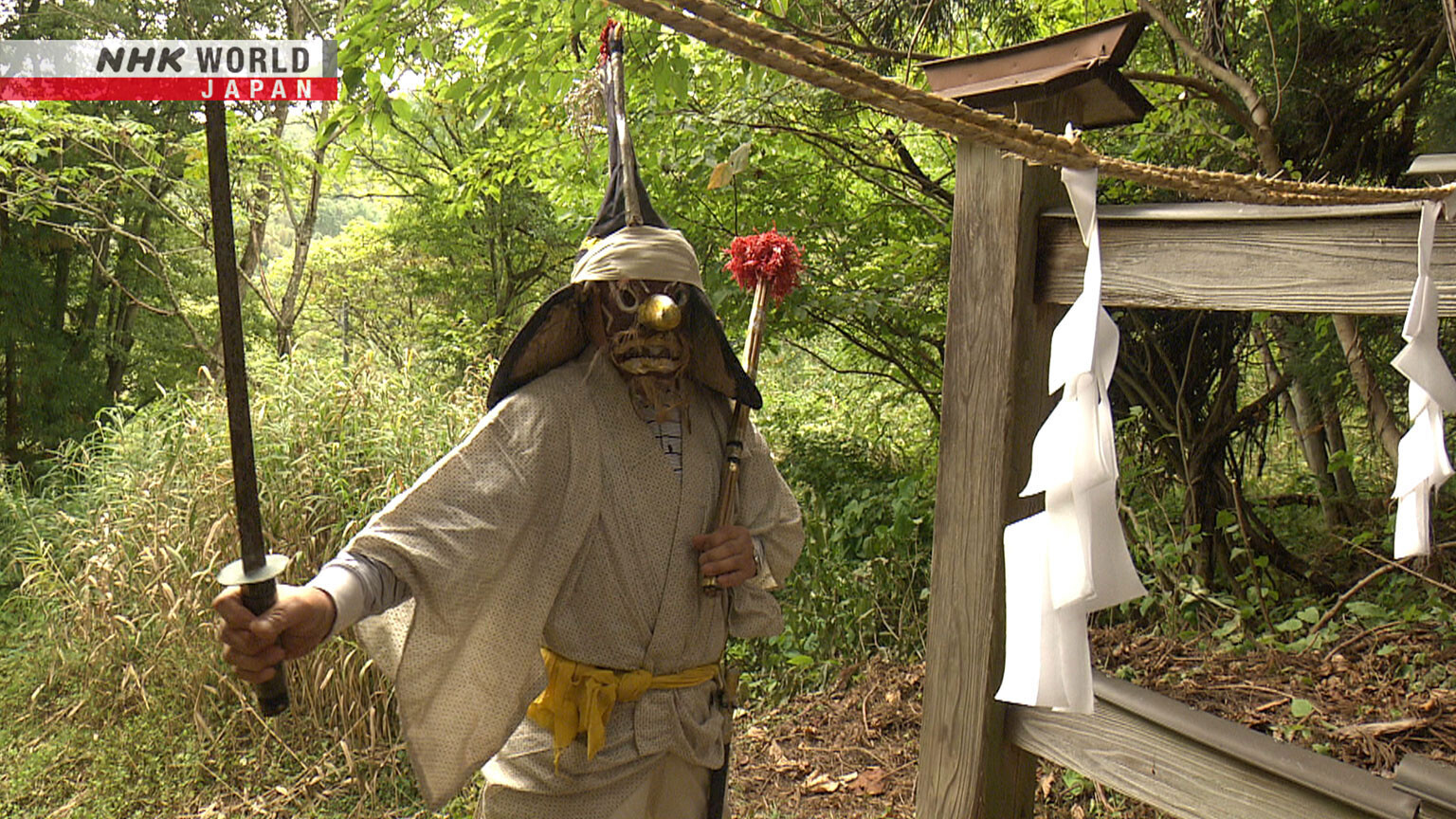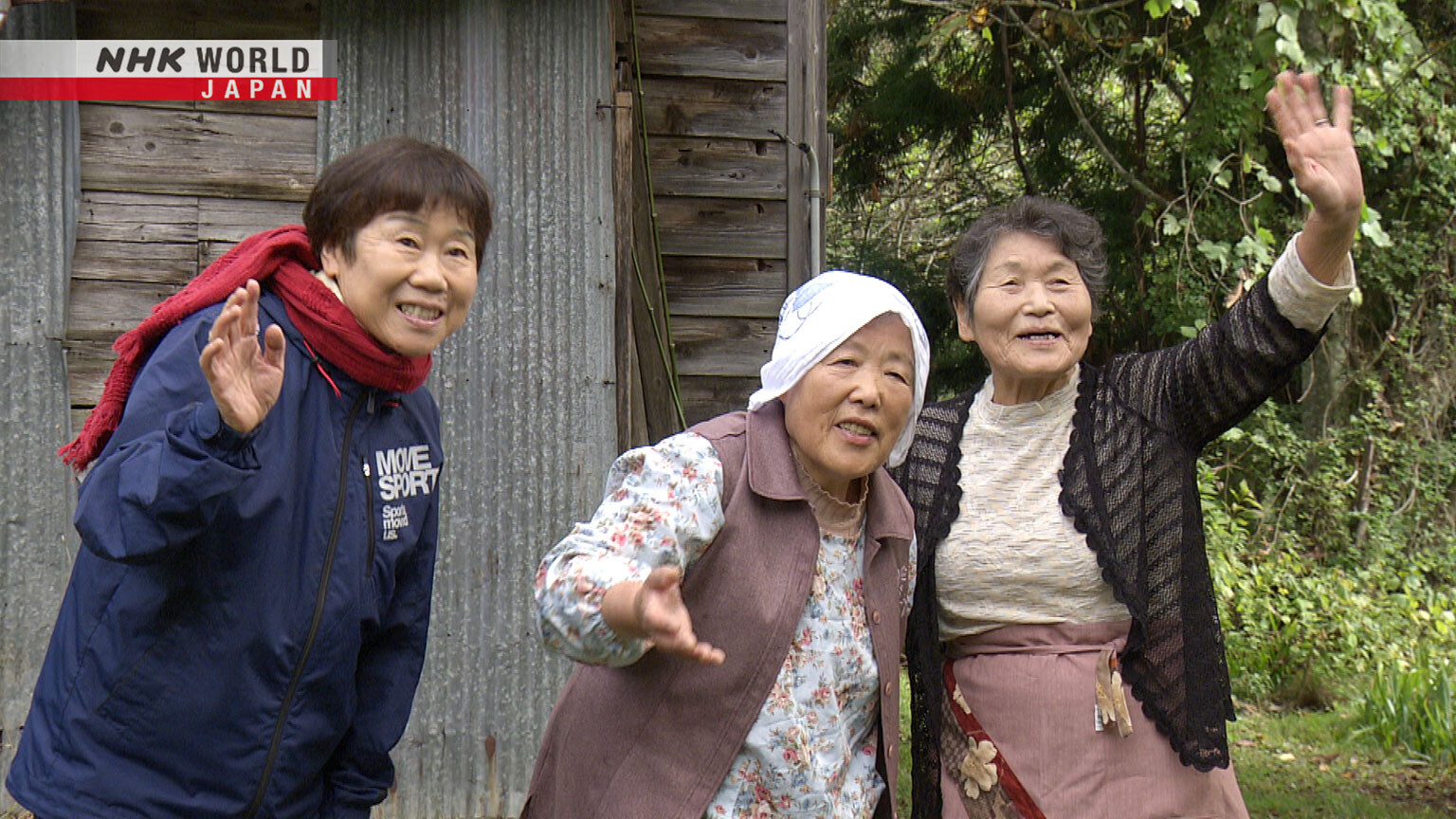Explore Japanese TV with this "traditional" travel documentary about a majestic mountain village. Watch until the end to discover the program's true message.




Transcript
Greetings. I'm Robert Bruford.
Did you know that there is a treasure trove of captivating Japanese shows just waiting to be discovered?
Today, my special recommendation is a program that delves into Japan's rich traditional culture.
One actor embarks on a journey to the mountain city of Nagano.
Surrounded by lush nature, local culture, and delicious cuisine.
There, he encounters unforgettable moments at every turn.
Ah, but you're thinking - just another typical travel documentary...
Or is it?
You'll find out soon enough. We'll talk afterwards.
So, without any further ado, sit back, relax, and enjoy the show!
I've arrived at Iiyama, Nagano.
It's harvest season and I'm excited to see what encounters await.
Iiyama, located in northern Nagano, is about a two-hour bullet train ride from Tokyo.
Soon, the harsh winter will cover the region, but before that, autumn's blessings arrive.
There's a creek flowing.
Shishido is visiting the mountain village of Kuttsu.
Anything to catch?
- Fish are swimming.
- Are they?
- Circling over there.
- Found them! Big ones!
They're small.
- What kind of fish?
- Char.
The water must be quite clean.
- Hello.
- Hello.
Catch anything?
- Just added bait.
- Stolen away!
What do you use for bait?
Bee larva.
They're pretty tasty.
I used to fish here when I was young.
As kids, we played with cedar toys.
The cedars around here grow a lot of nuts.
Although there's a lot of pollen, hay fever was never a problem for locals.
They must have built a resistance to pollen.
There's someone else. What are you doing?
I was on a walk and smelled a Japanese pit viper.
I'm searching the area.
- A pit viper?
- Yes, a snake.
The liver of a pit viper is really delicious.
Way tastier than eel.
Wrap the guts around a stick and grill it over an open fire. Fat drips off.
Shishido-san!
Please eat something delicious!
Please come in.
- Do you mind?
- Not at all!
Wow, look at this. Such beautiful plates!
Bamboo shoot soup, boiled mountain vegetables, and tempura,
which is enjoyed on celebratory occasions.
The feast is filled with the wisdom of the mountains.
- What's this round thing?
- A biscuit.
What? No way.
- Seriously?
- Seriously!
It's my first time.
It might be over fried.
You can tell it uses tempura batter. The balance of salty and sweet is perfect.
There's no access to high-quality ingredients, but we make do.
By the way, where were you originally from?
Here.
Here!? You were born here?
Yes. Right down that way. But all of the buildings are gone.
Oh! A torii gate. Must be a shrine.
This shrine has been around for over 200 years.
It was bustling with people preparing for the autumn festival.
What does it feel like when a festival is coming up?
That's hard to answer.
Excitement?
There used to be.
Shishimai, or lion dance, is performed as a prayer for good health and a bountiful harvest.
- This looks pretty old.
- It is.
Sato Choji is in charge of the lion dance, a key part of the festival.
Choji-san, how do you feel about tomorrow?
The feelings are gradually sinking in.
Choji was born and raised in the village.
He said his strong feelings for his hometown
were bolstered by his experience traveling the world when he was young.
When I see the eyes of people living in the city,
they look like those of a fish that has been dead for days.
But in the mountains, children's eyes shine with life.
I've always known mountain life is better.
Residents come together to celebrate the pride of their village: the autumn festival.
Since long ago, the village completely changed for festivals.
It was like the only time flowers bloomed.
Kuttsu has always had the best festivals.
- It's about to start?
- That's right.
The festival begins with a purification ritual.
The tengu, a being from Japanese folklore, cuts a sacred rope with a sword to drive out impurities.
Finally, it's Choji's part.
Onbe-mai: a dance with a staff and a bell that represents dancing with the gods.
In the Kuttsu lion dance, female lions dance at a low posture.
Break a sweat?
Yes, but from nervousness.
One of the rituals is the lion dance. I'm surprised everyone remembers it.
This is a good tradition to pass down to each generation.
What?
There were once 110 people living in Kuttsu.
The last person left in 1972, and now the village is abandoned.
Good morning.
Former residents of Kuttsu arrive with their families.
(Director) Let me first explain how everything will go.
The village's customs and culture will disappear if nothing is done.
We approached former residents about recreating how the village used to be.
We can just talk about the past. Do we need to recreate it?
I think it's interesting.
I'll do it.
If it was about someplace else, it would be an easy no.
But it's about Kuttsu. I would love to be a part of it.
You have photos of Kuttsu, right?
This one? Everyone in Kuttsu has one.
It's hard to imagine now since the village is covered in grass.
As the Japanese economy developed in the 1970s, agriculture declined.
People left the village one after another.
The community could no longer function, and the decision was made to leave en masse.
Choji searched for a way to revive his hometown, but to no avail.
He was Kuttsu's final resident.
It was sad to leave.
And at the same time, I was so angry. I didn't understand the timing.
"I want to stay in Kuttsu."
"I love Kuttsu."
Former residents and their descendants formed a preservation society.
They continue to gather several times a year to cut the grass, remove snow, and protect their hometown.
In the end, it's about deciding what the purpose of your life is.
It could be for whatever,
but I want to dedicate mine to the mountains of Kuttsu.
For the first time in half a century, the villagers get to return to life in their hometown.
There they are.
The costumes.
That's right.
For the purification ritual.
I want my hometown to be documented.
Everyone wants to keep its memory alive.
One former villager held on to the lion with great care.
We dried out everything here.
But there was one problem.
To recreate the lion dance, we need someone
who actually did it back then.
I did, but don't remember.
Same here.
We visited someone in search of clues.
Moichiro is a village elder who knows the festival well.
Change position here.
Until then, you hold it in one hand? Two in one hand?
I don't know how to do that with my hands full.
I don't remember.
You remember. More than all of us. We don't have many parts.
The movements and sounds from those days gradually come back to them.
We should have recorded it, but that was a different era.
We want to do all we can to preserve the culture and traditions of our home.
Is this right?
The one before was better.
It doesn't make a sound. But I can hear the melody.
- Do you mind?
- Not at all!
Thank you!
- Finished?
- All done.
I want to see the video.
Another try? Is that the consensus?
Brings me back!
I'm thankful just for the chance to remember.
They recreated the village's games, cuisine, and daily life as it used to be.
I did it!
We haven't seen the curtain in years!
The purification ceremony was performed by village elder Moichiro.
My final duty of service.
Cool? Looks good?
They did all they could in one month.
For the first time in 50 years, the Kuttsu lion danced.
I'm sure my late father is pleased right now.
"Everyone, it's farewell!"
There's no more path to take. That way's a dead end.
I'm just happy we did this.
I'm so impressed all you got done in just three to four days.
I learned it from you and practiced at home.
Thank you, Choji.
Thanks to you, I was able to remember it. Thank you.
I really thought we should give up.
We couldn't remember the dance. The second rehearsal was a disaster.
I'm glad we did this.
A great final memory.
The young generation did a great job. We'd have nothing without them.
It was great.
I gave it my all. I wanted to do whatever I could.
Well, what did you think?
Indeed, Japan is dealing with population decline and an aging society
that is resulting in depopulation issues nationwide.
Shockingly, 139 communities have vanished in only four years.
Over 2,000 communities have disappeared in six decades.
However, just take the village of Kuttsu, for example.
It was abandoned fifty years ago,
but still the spirit of that place
remains in the memories of those people who used to call it home.